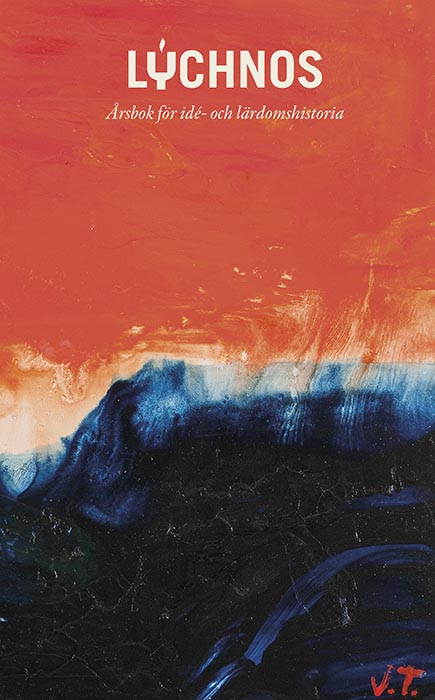Religion i det svenska idéhistorieämnet
Översikt och reflektion
Nyckelord:
History of Ideas and Science, religion, postsecularism, historiography of ideas, SwedenAbstract
During the last few decades, the West has seen a “return of religion”, and it has even been suggested that we have entered a “postsecular” era. An earlier secularization thesis according to which religion, as a result of modernization, seemed doomed to disappear, has been problematized. It has also been pointed out that a secularization framework has had implications for historical scholarship, in which religion has often been ignored or treated as separate from other social spheres.
In this article, we want to examine whether this may hold also for the Swedish field of History of Ideas and Science. An investigation of dissertations and of articles in the journal Lychnos suggests that religion has been sparingly treated by historians of ideas. We also discuss this more qualitatively, departing from an overview of the history of ideas in Sweden, Svensk idéhistoria. Bildning och vetenskap under tusen år (2000) (English: Swedish history of ideas. Learning and science through a thousand years), by Tore Frängsmyr. Here we identify some secularistic tendencies that separate reli- gion from the rest of the history of ideas and make a sharp distinction between religion and the secular, even when such a dichotomy does not do justice to the period investigated. We do this by discussing the treatments of Nathan Söderblom, Paul Petter Waldenström and the Enlightenment.
In a concluding discussion, we argue that History of Ideas and Science could gain much from being more receptive and reflexive in regards to religion. We also think that the discipline is very well suited to investigate the historical developments which have formed our view of religion, secularization, and with it, modernity.
Downloads
Publicerad
Nummer
Sektion
Licens
This work is licensed under a Creative Commons Attribution 4.0 International License. The copyright for the work published in Lychnos remains with the authors.


